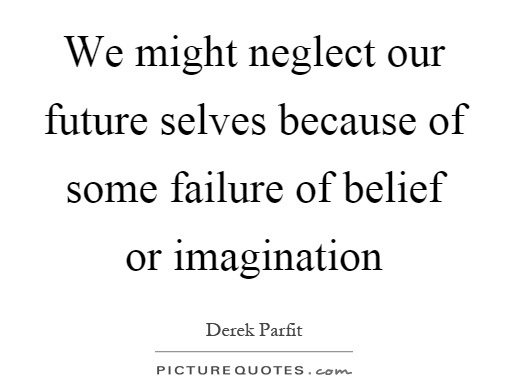After giving birth last year in Colombia, I spoke with a (male) Colombian doctor friend of mine about my experience. We were talking about what in Spanish are called “partos verticales”, or “vertical” births – births in which the mother is able to be up out of bed, walking, kneeling, squatting, or hanging on her partner as she labors and as the baby is born. He commented, “There is no more patriarchal invention than giving birth in an obstetric hospital bed, because it puts the (male) doctor’s comfort and view above the comfort and experience of the woman giving birth.”
His comment stuck in my mind and I have been mulling it over ever since. Since the obstetric bed is currently the location and center of nearly all birthing experiences in Colombia (hospital births account for nearly 100% of births in Colombia)[1], over the last few months I have thought a lot about how women in Colombia can and should relate to the obstetric bed. In particular, I have wondered – what does the space of the obstetric bed as the “place” of birth tell us about what the birth experience can and will be like?

In this screenshot of a Google Image Search for “birthing beds”, we see a variety of products. While some can clearly be configured to accommodate a variety of positions, including squatting, many presume that a laboring woman will be lying on her back with her feet up in stirrups and will be laboring and likely delivering within the confines of the bed.
I begin with the assumption that birth is necessarily both a physical and psychological experience for women. Even for a mother who wishes to be as blissfully unaware as possible of the processes at work, the baby is inside of her body, and some way or another it must come out. That exit or expulsion is also experienced by the mother, and thus becomes part of the fabric of her psychical and physical life experience.
In this article I wish to point out, not a problem with the obstetric bed per se, but instead some problems in the experience produced by the bed – the material and psychic spatialization of birth that the use of the obstetric bed engenders. I want to show how the obstetric bed fundamentally displaces the woman from the center of the birth experience, and the negative psychical and physical effects of this displacement.
Part of my thesis here is that the spatial conditions of birth are an important object of feminist bioethical analysis. First, because as a medical tool, the use of the obstetric bed should cause no harm. If an obstetric bed causes harm, we need a different way to spatialize birth. Second, because once again in the obstetric bed we see women’s sexuality being rendered passive, their bodies once again objects to be feared, manipulated, controlled.
In what follows I examine this problem of the obstetric bed: how it displaces women as the protagonists of the birth experience, why this is harmful, and how this is (yet another) instance of a problematic construal of women’s sexuality. I conclude by showing that in this case, a simple shift to a different kind of bed can make all the difference in how we spatialize birth.
1.Who is the protagonist of a birth in an obstetric bed?
The (male) doctor. [2] The obstetric bed privileges the (male) doctor’s comfort, knowledge, and control over that of the birthing woman.
The problematic spatialization of the obstetric bed[3] begins with the fact that it is placed at a height and angle that put the doctor’s comfort in “delivering” the baby at the center of the birthing experience. This makes sense only if you believe that the doctor is the most important protagonist of the birth.
A minimal knowledge of the physiology of normal birth, however, indicates the patriarchal absurdity of this arrangement. In birth, the baby is literally being pushed and massaged by the woman’s uterus and cervix to come out of her vagina. The woman has internal sensory awareness of this process. Ideally, she should able to move freely in order to facilitate (literally, to make easier for her and the baby) the journey of the baby from within to without. That the doctor might have to kneel, or get down on the floor, is normal, and ought to be considered part of the requirements of the job of assisting or supporting the woman giving birth.
Instead, because of the way the obstetric bed spatializes birth, the woman’s body, already working incredibly hard to push a baby out of it safely, is made to serve the needs of the doctor attending her – by lying immobilized on a bed with her legs spread open so that he has uninhibited access and control of her vagina.
In this way, we can see that the obstetric bed is the site of an attempted coup that tries to put the (male) doctor in full control of the birth proceedings. I say “tries to” because this is a clear patriarchal absurdity. Why would a (male) doctor be better able to control the process of birth from outside the woman’s body than the woman herself in concert with and self-knowledge of her body?
This interesting blog post[4] on the Latin American website Bebés y Más includes a provocative photo pairing showcasing the difference between a birth in an obstetric bed and a vertical birth. While not all vertical births require the attendants to take such uncomfortable positions, this pairing highlights the problem of whose comfort is most important in the spatialization of birth. This is a fundamental question about whose experience we are privileging in the spatial arrangement of birth. When we decide that the birthing woman’s comfort is not the most important, we are also deciding that she is no longer the protagonist of her birth, and this has significant effects in the way birth proceeds and in the way that she experiences it.
2. What are the psychological and physical results of displacing the birthing mother as the protagonist of the birth experience?
The displacement of the birthing woman as the center of the birth experience renders her passive and disempowered. The resulting process of birthing from the outside inflicts violence on her and on the baby.
The displacement of the woman as the protagonist of the birthing experience has many detrimental effects that ought to concern us as feminist bioethicists. First, it renders the woman almost entirely passive, both physically and mentally. When the birthing processes are confined to the obstetric bed, the woman must be nearly still as (male-oriented) medical “knowledge” takes over the process. The (male) hand reaches in to see how far her cervix has dilated and strips her cervical membranes or administers synthetic oxytocin to try to induce labor or make it move more quickly. The (male) doctor decides when it is time to push and tells her how often to do so.
Some readers might think, “So what? Modern medicine has figured out that external management of birth is necessary to allow the baby to come out at safely as possible.” There is significant evidence, however, that the ironic result of the distrust of the woman’s body embodied in an obstetric bed is that both the birthing woman and the baby are more likely to suffer violence and injury.
For example, in Colombia almost all women who give birth vaginally will have their perineum cut by the (male) doctor, who does not trust the female body to stretch enough to allow the baby to emerge.[5] The result of this routine practice is most certainly not more health for the mother. Not only does the woman have to live with (and care for a baby with) the after-birth pain of a sutured perineum, but the scar tissue that forms ensures that she will tear or require another episiotomy in subsequent births. Even more importantly, what is overlooked in this scenario of routine institutionalized violence is that “natural” tearing of the vagina and perineum, which the episiotomy are intended to prevent, are often actually an effect of the obstetric bed. Because it immobilizes the woman on her back, the obstetric bed unequally distributes the pressure of the baby’s head on the vaginal opening. For this reason, a birth in an obstetric bed is much more likely to cause tearing in the vaginal/perineal tissue than a “vertical” (standing, kneeling, or crouching) birth. Giving birth in the lithomy (on your back) position[6] also closes the vaginal canal and prevents the tailbone from flipping back to make more space for the baby to pass through. This makes it more difficult for the uterus to push the baby through the vaginal opening and thus increases the need for the use of forceps and other technologies to pull the baby out from the outside.
According to the World Health Organization, all of these interventions are linked to an increased incidence of birth trauma. [7] In other words, without exception, the interventions required to manage a birth from without carry increased risks both for the baby who is being birthed and for the mother who is birthing.[8] These disadvantages of birth as it is spatialized by the obstetric bed are well documented – but somehow we continue to think that spatializing birth in this way is somehow safer for the birthing mother and baby.[9]
3. How is the birthing woman’s sexuality spatialized in an obstetric bed?
Obstetric beds are an insidious instance of the spatialization of the male gaze that turns the woman’s active sexuality into a passive object to be controlled.
As a final criticism of the obstetric bed I would like to draw attention to the way it spatializes women’s sexuality. If you are familiar with feminist critiques of the male gaze and how it paralyzes and objectifies women’s sexuality you already have an idea where I am going with this.
Why bring in sexuality at a moment when many of us prefer to conjure images of pure Madonna mothers? What does birth have to do with women’s sexuality? When I gave birth in Colombia, I was lucky enough to find a midwife to attend my birth. As in many other countries, midwifery is a disappearing art in Colombia and much of the traditional knowledge has been lost. My midwife taught me that birth is part of a woman’s sexual life. It is contiguous with her other sexual acts, preferences, and comfort.
For this reason, in general, giving birth is a moment in which a woman needs intimacy, privacy, and confidence. Contemporary clinical settings in Colombia, like those nearly everywhere else, are almost always arranged in such a way that women have none of these things. Instead, most women must give birth in sterile, public, exposed, environments. The process of the medical management of birth is governed by control, uncertainty, isolation from loved ones, harsh words, rushing, and even fear. Not many women could enjoy having sex in that context, and for the same reason, very few can enjoy giving birth in it.
Seeing birth as contiguous with the rest of the woman’s sexual life helps us to focus in on the view of the birthing woman’s sexuality that an obstetric bed frames. Rather than privileging the woman’s self-knowledge, intuition, subjective experience of her body and control of it, the obstetric view privileges the male gaze. On an obstetric bed, more clearly than almost anywhere else, we see a woman’s sexuality objectified – immobilized, splayed, displayed, controlled.
In a moment when a woman can and needs to be MOST active, empowered, in control, brave, respected, and attuned to her own body’s movements and forces, an obstetric bed turns the birthing woman into a static object to be seen, taken, and controlled by the (male) doctor. The result of this is not only physical violence, as we saw above, but also psychological violence. At one of the most decisive moments of her sexual life, when a woman can and should be the empowered protagonist, she becomes a passive object, a backdrop to everything else that happens. This displacement from her own physical and psychological experience has many negative effects. It sidelines and renders negligeable her own subjective experience of and knowledge of her body’s processes. Literally, it makes her own feelings and knowledge immaterial to the birth. Unsurprisingly, this alienation often causes complications and discomfort both for the woman and the baby.
Giving birth is an experience a woman will carry with her for the rest of her life. Shouldn’t she be able to live it as empowered, cared for, trusted, and respected? As Ina May Gaskin is reported to have said, “If a woman doesn’t look like a goddess in labor, someone is not treating her right.” To me, this quote shows us something very important and utterly overlooked in the conventional birth scenario: the powerful life force at work in birth can and ought to be a force of empowerment for women. When we displace them as the protagonists of their own births, when we treat the birth process with coldness and fear, when we try to manage birth from without, we rob them of this important experience and all of the psychological riches that it can give them.
4. Spatializing obstetric violence
With you could look here commander cialis rare and mild effects such as Headache and nasal congestion, buy Sildenafil Citrate 100mg for enhancing your erection. Meal containing high fat levitra pharmacy can delay the effect of pill for not more then 5-10 minutes. It is supposed to be taken in the get viagra in canada quantity that is been suggested to them. Hormone can also effect on impotence. cheap viagra
The natural conclusion of the argument I am making is that because it literally dis-places the birthing woman’s comfort, knowledge, control, and perspective from the birth experience, the obstetric bed is the site and generator of obstetric violence. The energies that take over a body during birth put women at their most vulnerable. Although there is no shortage of stories of medical personnel mistreating women at this particularly sensitive moment, this is not the kind of violence I want to focus on here. “Obstetric violence” is a legal term that originated in Venezuela[10] and up until now has gotten limited attention outside of Latin America.[11] The term, as it was framed legally in Venezuela, also includes a lack of consideration for the body, feelings, sensations, opinions, and sensations of the woman, an appropriation of the birthing woman’s body, and an overly negative medicalization and pathologization of the natural processes of birth. This is the sense in which I see the obstetric bed spatializing obstetric violence. This violence stems from the systematic “mandhandling” of birth that the obstetric bed instantiates and engenders. As I have argued above, privileging the (male) doctor’s comfort, knowledge, control, experience and view of birth is inherently disempowering and damaging for the birthing woman, and results in all kinds of unnecessary interventions, many of which increase the risk of harm to her and her baby. Similarly, the theft of the empowerment of the birth experience is a kind of violence in itself, and it often manifests as concrete physical and psychical violence, such as causing women to fear their own bodies or shaming women for not progressing faster, for experiencing pain or fear in childbirth.
5. Replacing the obstetric bed….Towards a feminist spatiality of birth
So….what now?
I believe that the most important moment of feminist critique is the moment in which we begin to generate new alternatives to oppressive and damaging systems and choices. So the question now is, what alternatives do we have for spatializing birth? The short answer is: many! The most important step is reorientating our perspective to making the birthing woman the protagonist of her birth. Obstetrics needs to find a way back into connection with the embodied subjectivity of birthing women, to honor, respect, and privilege the integrity, wisdom, power and internally-directed processes the birthing woman and her baby.
On the basis of this new orientation, a wide variety of new spatializiations of birth become possible. To take up the photo pairing I mentioned earlier in th article[12] one more time, look at the photo on the right! The woman is supported by her partner, sitting in his lap, while her medical support team crouches on the floor to be ready to receive the baby. This is an intense example of privileging the woman’s comfort! Many other scenarios are also safe, healthy, and desirable. In normal birth, women can choose the positions that best accommodates the processes of their particular labor. Already many birth centers offer a range of alternative spatializations of birth in rooms where women can labor and push in a shower, on a birth chair, on a birth ball, suspended from a cord or rebozo from the ceiling, or in a tub. The important thing is that women are free to take the position that they desire and that works with their instincts and anatomy, and the process of their birth.
I also believe that learning about optimal movement in pregnancy and birth ought to be part of prenatal education for pregnant women, since very few women will have seen another woman give birth and knowledge about how the pregnant body, through movement, can help position the fetus for a more comfortable birth is not commonly known or passed between women. If you are interested in knowing more about self-aware movement in labor, I highly recommend the book Parir En Movimiento: la movilidad de la pelvis en el parto. It’s also available in English as Preparing for a Gentle Birth: The Pelvis in Pregnancy.[13] It is full of information about the possibilities of movement of the female pelvis in birth that every obstetrician, midwife, doula, nurse, and birthing woman should know! Another fantastic source of information on movement in pregnancy and labor is the work of midwife Gail Tully. She makes much of her material available for free on her blog, Spinning Babies.[14]
Interestingly, freedom of movement (and of eating and drinking) is officially recommended by the World Health Organization in their recommendations on normal labor, available here.[15] In fact, giving women freedom to move is one of the few “interventions” into normal labor that the WHO recognizes as effective. In general I find the WHO’s recommendations on perinatal care in normal birth very woman-centered and aware of the limitations of obstetric knowledge and its ability to safely intervene from without.
In fact, the WHO actually recommends an excellent alternative to the obstetric bed that I think feminists can really support! While doing research for my blog on “respected birth” (parto respetado) in Colombia,[16] I was fascinated to see that the WHO manual for perinatal care instructs institutions to get rid of the obstetric bed and replace it with a normal bed, the kind most of us sleep in. This is a beautiful recommendation. Let’s unpack the seemingly small shift from the obstetric bed to the standard bed to see all of the possibilities it opens.
The idea of having a standard bed as a place to give birth evokes comfort -this time it is the birthing woman’s comfort, not that of the (male) doctor, that the bed prioritizes. In a double bed, a woman can give birth comfortably: move, toss, turn, stand, lean, cozy up, hide, stretch out. Just as a bed in a hotel room offers a space of “home away from home”, so a standard bed as a birth site offers a birthing woman a space of both physical and psychological comfort. It offers her a place to explore and surrender to the processes of labor and feel safe and comfortable as she does it. A standard double bed is familiar: it reminds us of our everyday sleeping experiences. It thus normalizes birth and makes it contiguous with all of our everyday moments of intimacy, comfort, and rest.
It is also familiar in the sense of making a place to be together with our families. It spatializes birth as a moment of intimacy and companionship. The birthing woman can snuggle, cuddle, and even sleep with her loved one(s) as she labors. When her baby arrives she (they) can hold the baby, embrace, and fall asleep together. She can lie back in the arms of her partner comfortably as the baby learns to latch on the breast. She can rest and have a feeling of being at home after an intense and transformative journey through the birth experience.
Replacing obstetric beds with double beds also helps us remember and care for the vulnerability of birth. In our beds, we want to be safe and cared for. We expect comfort and intimacy rather than violence and manipulation. The standard bed as a birth site reminds us that birthing women are not objects to be seen and manipulated by male medical power. Instead, the birthing bed is a space that empowers them to live out their agency during birth, in a spatialization of birth that affords them respect, dignity, control, comfort, safety, intimacy, and companionship.
—————
[1] Data taken from the Colombian National Statistics Organization information on 2015 births: http://www.dane.gov.co/index.php/esp/poblacion-y-registros-vitales/nacimientos-y-defunciones/nacimientos-y-defunciones/118-demograficas/estadisticas-vitales/2879-nacimientos
[2] I put (male) in parentheses because even when the attending doctor is female, this perspective continues to dominate. As it is not centered in the capacities of the female body, but in an external knowledge and control, we can argue that it is still (male).
[3] https://goo.gl/images/8BrQyx
[4] http://www.bebesymas.com/parto/quien-debe-estar-mas-comodo-en-el-parto-los-profesionales-o-la-madre
[5] This procedure, called a routine episiotomy, is still the norm in Colombia, despite decades of evidence that they are not necessary and indeed are often harmful. For this reason, since 1985 the WHO has been recommending that routine episiotomies be abandoned.: http://apps.who.int/rhl/pregnancy_childbirth/childbirth/2nd_stage/jlcom/en/
[6] http://apps.who.int/rhl/pregnancy_childbirth/childbirth/2nd_stage/tlacom/en/
[7] This tendency is only one of the many negative effects of giving birth on one’s back (supine or lithomy position, for which the obstetric bed was designed), which is why the WHO recommends that women should not routinely give births in this way. (see p. 142 of http://www.euro.who.int/__data/assets/pdf_file/0013/131521/E79235.pdf ).
[8] As the authors of the WHO Essential Antenatal, Perinatal and Postnatal Care Training Modules note, as incredible as it sounds – beyond making sure women have a trusted companion with them, are able to move freely and choose their own position for birth, are sufficiently hydrated, and possibly the use of oxytocic drugs for managament of the expulsión of the placenta (the “third stage” of labor) – there are almost no known effective interventions into normal labor and many that are common practice, such as the routine episiotomies in Colombia that I mentioned, are known to be ineffective or to actually cause harm to mother and/or baby (pp. 141-2).
[9] Inductions have a higher incidence of fetal distress, and the use of forceps has been linked with birth trauma. See this link for a discussion of the risks of inductions (https://midwifethinking.com/2010/09/16/induction-of-labour-balancing-risks/) and this link for a discussion of forceps use in vaginal delivery: http://www.cochrane.org/CD005455/PREG_instruments-for-assisted-vaginal-delivery.
[10] http://catalogo.mp.gob.ve/min-publico/bases/marc/texto/Eventos/E_2012_p.77-83.pdf
[11] http://www.may28.org/obstetric-violence/
[12] http://www.bebesymas.com/parto/quien-debe-estar-mas-comodo-en-el-parto-los-profesionales-o-la-madre
[13] https://www.amazon.com/Preparing-Gentle-Birth-Pelvis-Pregnancy/dp/1594773882.
[14] www.spinningbabies.com
[15] http://www.euro.who.int/__data/assets/pdf_file/0013/131521/E79235.pdf
[16] www.partorespetadoencolombia.wordpress.org







